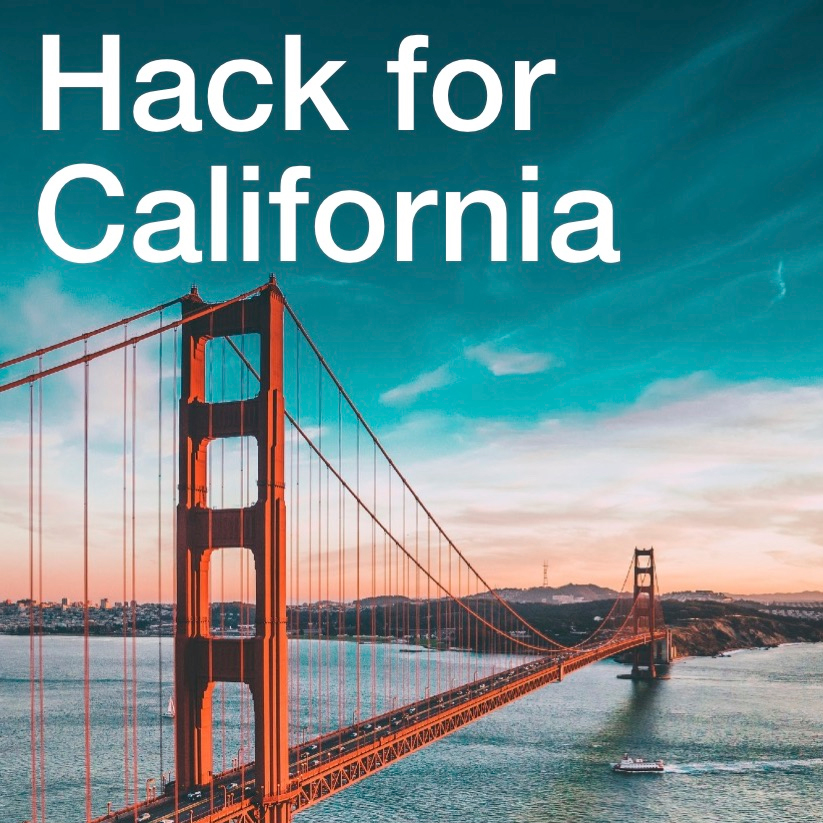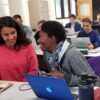DataLab is offering two free workshop series this September and we invite you to apply! Introduction to Python is a 3-workshop series taking place September 6, 7, and 8 from 5-7 pm, and Introduction to Collaborative and Reproducible Research Practices with R is a 4-workshop series taking place September 12, 13, 14 and 15 from 10 am – 3 pm with a lunch break. Descriptions and application links are included below. For further detail, including prerequisite information and instructor bios, please visit the linked event pages.
Introduction to Python (September 6-8, 5:00-7:00 pm)
Many graduate programs and research projects require proficiency in coding and working with data. This training is designed to expose graduate students who have little to no computational background to the open source Python coding language. This 3-day intensive workshop series by the Davis Python Users Group is hosted by the UC Davis DataLab and is open to all UC Davis graduate students and postdoctoral scholars. Attendance at all three sessions is required. This is a great opportunity to learn a new skill and meet other members of the graduate community! Each session will begin with demonstrations on fundamental Python topics, followed by Q&A and open practice where learners can work on challenge assignments together and ask questions to the volunteer instructors. The assignment builds off the previous sessions so by the end of the series learners will have a complete Python project for their portfolios. This training is designed for in-person instruction and seats are limited. A Zoom link will be available for those unable to attend who would like to watch the demonstrations.
Learning Objectives: After this workshop, learners will be familiar with basic Python programming syntax, libraries such as NumPy and Pandas, visualization tools, writing reusable functions, and identifying where to go to learn more.
Apply to workshop series: https://registration.genomecenter.ucdavis.edu/events/IntroToPython3partSeries/apply/
Introduction to Collaborative and Reproducible Research Practices in R (September 12-15, 10 am – 3 pm + lunch break)
This four-day workshop series (9/12, 9/13, 9/14, 9/15) provides an introduction to coding, with an emphasis on leveraging open source tools to develop workflows for collaborative and reproducible research. The goal of this series is to increase research integrity via exposure to basic command line tools and version control (Git), collaborative cloud tools (GitHub), programming (R), and data and software management best practices. Materials build across the sessions. All UC Davis graduate students and postdocs with little to no prior programming experience are eligible to apply.
Optional: Data Challenge (following each session) 3:00 PM – 5:00 PM
Workshop Series Schedule
Day 1: Collaborative and Reproducible Research Overview and Introduction to the Command Line.
Day 2: Git and GitHub.
Days 3 & 4: R Basics. At the end of each session the learners are encouraged to continue practicing their skills by engaging in the fall Data Challenge. This series is scheduled for in person participation only and seats are limited.
Learning Objectives
By the end of this series, learners will be able to:
- Describe tidy data, project organization, and programming best practices;
- Explain the directory structure of their computers and use command line tools to create, copy, edit, and delete files;
- Create new repositories and begin using Git for version control of their individual projects;
- Push local changes to a repository on GitHub, open and merge pull requests, and create issues for project management;
- Load tabular data sets into R, compute simple summaries and visualizations, do common data-tidying tasks, write reusable functions;
- Identify where to go to learn more.
Apply to workshop series: https://registration.genomecenter.ucdavis.edu/events/IntroToCollaborativeReproducibleResearchPracticesR/apply/





